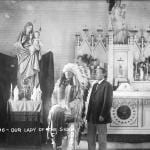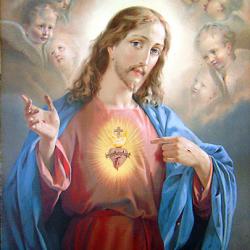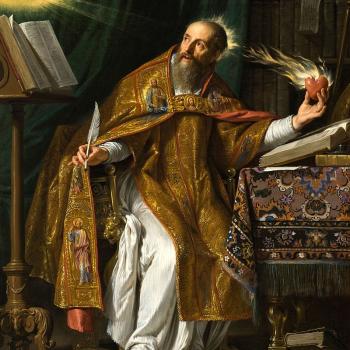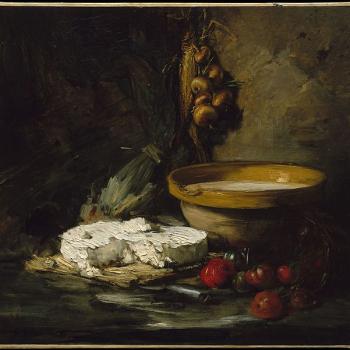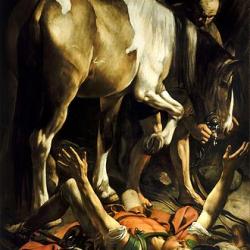The more we learn about our Catholic faith the more we will learn about the author of our Catholic faith, which is God. The more we learn about God, the more we will love God. The more we love God the more we will love our Catholic faith. That knowledge and love is stronger then death.
“There are not over a hundred people in the United States who hate the Catholic Church. There are millions, however, who hate what they wrongly believe to be the Catholic Church—which is, of course, quite a different thing. . . . As a matter of fact, if we Catholics believed all of the untruths and lies which were said against the Church, we probably would hate the Church a thousand times more than they do.” (1)

The better you know your Catholic faith, the better you will live it, and the better you live it, the better you will serve Jesus Christ, who is “the way and the truth and the life” (Jn 14:6). (2)
It would be a strange God who could be loved better by being known less. Love of God is not the same thing as knowledge of God; love of God is immeasurably more important than knowledge of God; but if a man loves God knowing a little about Him, he should love God more from knowing more about Him: for every new thing known about God is a new reason for loving Him.” (3)
The God we want to get to know is made manifest in Jesus Christ who is the image of the invisible God. When we look at Jesus we see God. We see the genius of God as the second person of the blessed trinity incarnates himself in the person of Jesus of Nazareth.
“The incarnational wit of Christianity is most present in two places: Bethlehem and Calvary. God so loved the world that he chose to become human and showed his humanity if the two most graphic moments of weakness: birth and death, womb to tomb. We adore an infant in a manger and a young man on a Cross. A baby in a feeding trough and Jewish dissident being brutally tortured to death. This is our incarnate God and therein we find our salvation.” (4)
The more we know about Jesus the more we Love Jesus. The more we Love Jesus, the more we love those whom He loves. He loves those made in his image and likeness. Because they are made in his image and likeness they have dignity and worth.
“Understanding each human person’s unsurpassed dignity and worth, created in God’s image and likeness, is the foundation of the Catholic Church’s teaching on life issues, reproductive issues, and social teaching, since society ultimately exists to protect and promote the welfare of the individual (GS, nos. 25-26)” (5)
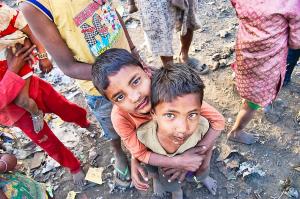
This understanding gives us a consistent life ethic that we must defend as those who love God.
“The Catholic Church’s consistent life ethic is a great service to society. It is our task to witness to the truth that love, compassion and solidarity can build a just society that will be safer for the poor, the unborn and those on the periphery.” (6)
“Those who defend the right to life of the weakest among us must be equally visible in support of the quality of life of the powerless among us: the old and the young, the hungry and the homeless, the undocumented immigrant and the unemployed worker. Right to life and quality of life complement each other in domestic social policy.” (7)
This domestic social policy affects all humans. Again,
“all human persons are created in the image of God, they have an inherent dignity — at every age and stage of their lives. This truth must inform our respect for every human life, whether in the first home of the mother’s womb, a wheelchair, a jail cell, a hospital room, a hospice, a senior center, a soup kitchen or on a refugee boat. (8)
The work we do is a work of love. This love requires a lot of work, sacrifice and imagination. Imaging a better world and then acting to bring that world about. Our work is important.
The grand and monumental project to change the world is about freeing the world from the power of evil, bringing people into communion with one another and with God—and we are a part of it. (9)
“The work we do is of eternal importance because, like it or not, people will have eternal happiness or eternal misery according to what we do.” (10)
Remember that according to the revelation of Christ to his church is that we will never die.
“Our existence began in time, on the day we were conceived, and we should be fully aware that it will know no end. God’s creating design was for our life to continue into eternity, after the end of time, by being “adopted” through love into the Divine Life, for the sake of our own unending happiness.” (11)
God is constantly trying to get our attention so he can remind us about all these things. Everything in life is an opportunity to learn these truths.
“Every happening, great and small, is a parable whereby God speaks to us, and the art of life is to get the message.” (12)
And finally to wrap up this meditation it is also good to remember…
“our true identity is that we are creatures of God, men and women with intelligence and free will. And when we are baptized, we become brothers and sisters of Jesus Christ. (13)
And one last thought about the kindness we leave behind…
Because of the ever mystifying kindness of people one has never met, of those one has met from time to time, and of those with whom one’s life is intimately intertwined, prayers and best wishes flow into one’s
Life Situation
into one’s being, and one is overwhelmed, but gently overwhelmed, by the mystery of goodness. It is goodness often scraped and bruised and damaged and scarred by what so frequently seems to be the overpowering evil of the world, but goodness which refuses to be destroyed. (14)
1. Fulton J. Sheen (Radio Replies, vol. 1, preface) Popular TV and Radio personality and also prolific author.
2. Karl Keating What Catholics Really Believe (2009) Ignatius Press Founded Catholic Answers in 1979.
3. Frank Sheed, Theology and Sanity. Frank Sheed was a popular writer whose books were often used in my classes at Franciscan.
4. Sam Rocha Was Baby Jesus a Refugee? (December 26, 2016) Sam Rocha. Sam Rocha was the Patheos Catholic Manager from 2015 – 2018
5. Alan Schreck PhD Reexamining the Work of the Second Vatican Council (Hermeneuticsof Reform) Teaching Aid – USCCB. Dr Schreck is a professor at Franciscan University. I had the pleasure of having him for several classes while I was studying there as a grad student.
6. Cardinal Sean O’Malley’s Whole Life Homily. Cardinal Sean O’Malley was sent to clean up the mess in Boston in 2003 as he was appointed Archbishop of Boston. This is my bishop, thank you very much.
7. Cardinal Joseph Bernardin. Cardinal Joseph Bernardin developed the “Consistent Ethic of Life” or the seamless garment” philosophy. It is a reference from John 19:23 to the seamless robe of Jesus. This view of life expresses what it is like to live in an age where modern technologies threaten the sanctity of human life.
8. Deacon Keith Fournier Pro-Life in the Diaconate, .the-deacon.com Runs Cathoic.org website.
9. Andy Otto How would you respond to this email? (May 2, 2016)
10. Fr. Michael Scanlan, Let the Fire Fall (1986) Servant Books
11. Pierre-Marie Dumont (Magnificat’s publisher) The Seven Mysteries of Salvation, a two-act meditation in music and drama. Founder Magnificat Magazine.
12. Malcolm Muggeridge
13. Father John Harvey Source of Same-Sex Attractions in Children: Parenting and Social Influences (January 24, 2004) Catholic Online
14. John Carinal O’ Connor, In a Hospital Room… (May 1, 2000) Crisis


